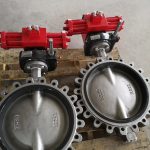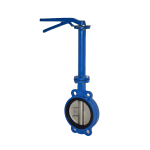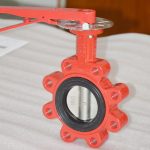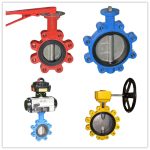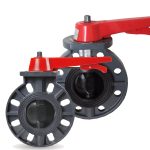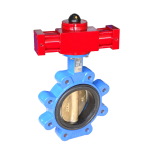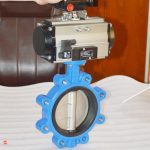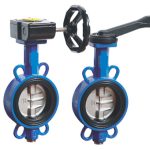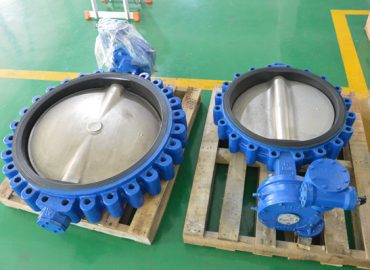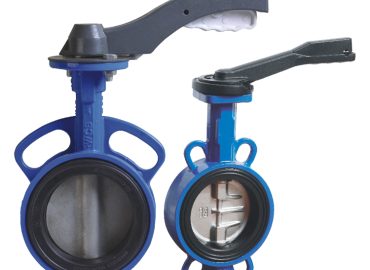Fly valves have been gaining popularity in the world of plumbing, and for good reason. These innovative components offer numerous benefits that can greatly enhance the efficiency, reliability, and longevity of your plumbing systems. In this blog post, we will delve into the advantages of using fly valves in various applications and explore how they can revolutionize the way you approach your plumbing projects. From improved flow control to corrosion resistance and easy installation, discover the game-changing benefits of incorporating fly valves into your plumbing systems.
Introduction
Fly valves are an excellent addition to plumbing systems, offering a multitude of benefits that significantly contribute to the overall efficiency, reliability, and durability of these systems. One of the key advantages of using wafer fly valves is their ability to provide precise flow control, which ensures optimal performance and prevents issues such as water hammer and pressure surges. Moreover, fly valves are known for their robust construction and high-quality materials, making them a reliable and long-lasting option compared to other valve types. Their corrosion-resistant properties further enhance their longevity, reducing the risk of leaks and ensuring consistent performance over time. Additionally, fly valves are designed for easy installation and maintenance, saving both time and money on labor costs, while also minimizing potential downtime. The versatility of fly valves is another major benefit, as they can be used in a wide range of applications, including residential, commercial, and industrial plumbing systems, as well as water treatment plants and irrigation systems. In summary, incorporating fly valves into your plumbing projects can lead to significant improvements in performance, cost savings, and overall system longevity, making them a smart choice for any plumbing professional or homeowner.
Briefly introduce the concept of fly valves
Fly valves, a relatively recent innovation in the plumbing industry, are designed to provide enhanced control and durability in various fluid management systems. These specialized valves operate by utilizing a unique mechanism that allows for precise flow regulation, ensuring optimal performance and preventing common issues like water hammer and pressure surges. Constructed with high-quality materials and featuring corrosion-resistant properties, fly valves have quickly become a popular choice among plumbing professionals and homeowners alike. Their versatility and ease of installation make them an ideal option for a wide range of applications, from residential plumbing systems to commercial and industrial installations. In essence, fly valves represent a significant advancement in plumbing technology, offering improved efficiency, reliability, and cost savings for those who choose to incorporate them into their projects.
Explain their importance in plumbing systems
Fly valves play a crucial role in plumbing systems, offering a combination of benefits that greatly contribute to the overall efficiency and reliability of these systems. Their precise flow control capabilities ensure that water and other fluids are managed effectively, reducing the likelihood of pressure-related issues and improving the performance of the entire system. Furthermore, the corrosion-resistant materials used in fly valve construction provide long-lasting durability, minimizing the need for frequent maintenance and replacements, ultimately saving time and money. In addition to these functional advantages, lug fly valves also offer ease of installation and compatibility with various pipe materials and sizes, making them a versatile choice for a wide range of applications. By incorporating fly valves into plumbing systems, professionals and homeowners alike can experience enhanced performance, reduced maintenance costs, and increased system longevity, underscoring their importance in modern plumbing solutions.

What is a Fly Valve?
A fly valve is a specialized type of valve designed to provide superior flow control and durability in plumbing systems, ensuring efficient and reliable fluid management. Unlike traditional valve types, fly valves feature a unique mechanism that allows for precise regulation of fluid flow, effectively preventing issues such as water hammer and pressure surges that can lead to system damage. Comprised of a disc, stem, and seat, the fly valve operates by rotating the disc around the stem, which in turn opens or closes the valve to regulate the flow of fluid through the system. The disc’s design ensures minimal obstruction to the flow, resulting in lower pressure drops and improved overall performance. Constructed using high-quality, corrosion-resistant materials, fly valves offer exceptional longevity and reduced maintenance requirements, making them an attractive option for various plumbing applications. Their ease of installation and compatibility with a wide range of pipe materials and sizes further contribute to their growing popularity among plumbing professionals and homeowners alike. In summary, a fly valve is an innovative solution that delivers enhanced flow control, durability, and versatility, making it an ideal choice for modern plumbing systems.
Define a fly valve and its main components
A fly valve is a specialized type of valve engineered to provide exceptional flow control and durability in plumbing systems. It features a unique design that allows for precise regulation of fluid flow, ensuring optimal system performance and preventing common issues like water hammer and pressure surges. The main components of a fly valve include the disc, stem, and seat. The disc, which is connected to the stem, rotates around it to open or close the valve, effectively controlling the flow of fluid through the system. The seat, on the other hand, provides a sealing surface for the disc when the valve is in a closed position. Constructed using high-quality, corrosion-resistant materials, fly valves offer outstanding longevity and reduced maintenance requirements, making them an attractive option for various plumbing applications.
Explain how it works in a plumbing system
In a plumbing system, a fly valve functions as an essential component for regulating fluid flow, ensuring optimal performance and preventing potential issues such as water hammer and pressure surges. The fly valve operates through its unique design, which includes the disc, stem, and seat. When the valve is opened, the disc rotates around the stem, allowing fluid to flow freely through the system. Conversely, when the valve is closed, the disc aligns with the seat, creating a tight seal that effectively stops the flow of fluid. This precise control mechanism allows for efficient management of fluid flow within the plumbing system, contributing to the overall stability and reliability of the entire setup. By incorporating fly valves into a plumbing system, professionals and homeowners can experience enhanced performance, reduced maintenance costs, and increased longevity of their plumbing infrastructure.
Benefits of Using a Fly Valve
The implementation of fly valves in plumbing systems offers a multitude of advantages that contribute to improved efficiency, reliability, and longevity. One of the most notable benefits of using fly valves is their ability to provide precise flow control, allowing for optimal system performance and preventing issues such as water hammer and pressure surges. This precision not only enhances the effectiveness of fluid management but also reduces the likelihood of damage to pipes and other system components. Fly valves are also highly regarded for their robust construction and use of high-quality, corrosion-resistant materials, ensuring long-lasting durability and minimal maintenance requirements. This translates to cost savings and reduced downtime, making them a popular choice among plumbing professionals and homeowners alike. Another significant advantage of fly valves is their ease of installation and compatibility with various pipe materials and sizes, which simplifies the process of integrating them into existing or new plumbing systems. Furthermore, their versatility makes them suitable for a wide range of applications, including residential, commercial, and industrial plumbing systems, as well as water treatment plants and irrigation systems. In conclusion, the incorporation of fly valves into plumbing projects can lead to substantial improvements in performance, cost savings, and overall system longevity, solidifying their position as a smart investment for any professional or homeowner seeking to optimize their plumbing infrastructure.

Improved Flow Control
Improved flow control is a crucial aspect of modern plumbing systems, as it directly contributes to the efficiency and reliability of fluid management. Fly valves, with their unique design and precision-oriented mechanism, offer an exceptional level of flow control that surpasses traditional valve types. By rotating the disc around the stem to open or close the valve, fly valves enable accurate regulation of fluid flow, ensuring that the system operates at its optimal capacity. This enhanced control helps prevent common issues such as water hammer and pressure surges, which can lead to system damage and costly repairs. In essence, improved flow control offered by fly valves plays a vital role in maintaining the stability and longevity of plumbing systems, ultimately resulting in better performance, reduced maintenance costs, and increased overall satisfaction for both professionals and homeowners.
Durability and Reliability
Durability and reliability are paramount attributes in plumbing systems, as they directly impact the efficiency, longevity, and overall cost-effectiveness of the infrastructure. Fly valves, known for their high-quality construction and use of corrosion-resistant materials, offer exceptional durability that ensures long-lasting performance with minimal maintenance requirements. This robust design not only withstands the wear and tear of daily use but also resists the effects of harsh environmental conditions, contributing to the valve’s extended lifespan. The reliable functionality of fly valves, coupled with their precise flow control capabilities, greatly enhances the stability and dependability of plumbing systems. As a result, professionals and homeowners can enjoy reduced maintenance costs, fewer system failures, and increased confidence in the performance of their plumbing infrastructure, making durability and reliability essential factors when considering the implementation of fly valves in any plumbing project.
Corrosion Resistance
Corrosion resistance is a vital characteristic in plumbing components, as it significantly influences the longevity and performance of the entire system. Fly valves, constructed using high-quality materials that exhibit excellent corrosion-resistant properties, are designed to withstand the detrimental effects of rust and other corrosive agents. This resistance to corrosion not only ensures the durability and structural integrity of the valve but also preserves its functionality and flow control capabilities over an extended period. By incorporating corrosion-resistant fly valves into a plumbing system, professionals and homeowners can benefit from reduced maintenance costs, increased system reliability, and enhanced overall performance. In essence, the corrosion resistance of fly valves plays a crucial role in maintaining the efficiency and longevity of modern plumbing infrastructure, making it a highly desirable feature for any plumbing project.
Easy Installation and Maintenance
Easy installation and maintenance are essential aspects of any plumbing component, as they contribute to the overall efficiency, cost-effectiveness, and user satisfaction of the system. Fly valves are designed with simplicity and compatibility in mind, making them straightforward to install in various pipe materials and sizes. This ease of installation not only saves time and effort for professionals and homeowners but also minimizes potential errors that could lead to system failures. Furthermore, the high-quality construction and corrosion-resistant materials used in fly valves result in reduced maintenance requirements, ensuring long-lasting performance with minimal intervention. As a consequence, easy installation and maintenance of fly valves translate to cost savings, increased system reliability, and enhanced user satisfaction, making them an attractive option for any plumbing project seeking to optimize performance and streamline upkeep.
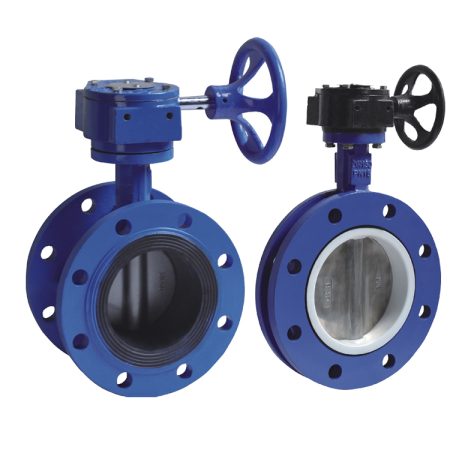
Versatility
Versatility is a highly sought-after attribute in plumbing components, as it allows for seamless integration into various applications and environments. Fly valves are renowned for their adaptability, making them suitable for a wide range of scenarios, including residential, commercial, and industrial plumbing systems, as well as water treatment plants and irrigation systems. Their compatibility with diverse pipe materials and sizes further enhances their versatility, simplifying the process of incorporating them into new or existing plumbing infrastructures. This adaptability not only contributes to the overall efficiency and cost-effectiveness of fly valves but also enables professionals and homeowners to tailor their plumbing systems to specific requirements and preferences. In essence, the versatility of fly valves plays a crucial role in addressing the unique challenges and demands of different plumbing projects, making them an invaluable addition to any plumbing system seeking to optimize performance and user satisfaction.
Fly Valve Applications in Different Industries
Butterfly valve have found widespread applications across various industries, thanks to their exceptional flow control capabilities, durability, and versatility. In the water and wastewater treatment industry, fly valves play a critical role in regulating the flow of water through treatment processes, ensuring efficient and effective purification and distribution. They are particularly useful in controlling the flow rate of chemicals, such as disinfectants and coagulants, which require precise dosing for optimal treatment outcomes. In the oil and gas industry, fly valves are employed to manage the flow of petroleum products through pipelines and processing plants, contributing to safe and efficient operations. Their corrosion-resistant properties make them well-suited for handling the harsh chemicals and corrosive fluids often encountered in this industry.
Another prominent application of fly valves can be found in the food and beverage industry, where they are used to regulate the flow of liquids, such as juices, syrups, and sauces, during production and packaging processes. Their sanitary design, ease of cleaning, and ability to maintain a consistent flow make them ideal for maintaining hygiene standards and product quality. In the pharmaceutical industry, fly valves are employed to control the flow of various fluids, such as solvents, reagents, and active pharmaceutical ingredients (APIs), ensuring accurate flow control and maintaining the integrity of the end product.
Irrigation systems also benefit from the use of fly valves, as they offer precise control over the delivery of water to agricultural fields, allowing for optimal crop growth and resource management. Furthermore, their durability and resistance to environmental factors make them well-suited for outdoor installations, where they are exposed to varying weather conditions. In HVAC systems, fly valves are integral to controlling the flow of heating and cooling fluids, ensuring energy-efficient climate control and contributing to overall system performance. Overall, the wide array of applications for fly valves in different industries highlights their adaptability and effectiveness in addressing diverse flow control challenges, solidifying their position as a valuable component in numerous industrial processes.
Residential plumbing systems
Residential plumbing systems play a vital role in ensuring the comfort, hygiene, and overall well-being of homeowners and occupants. These systems comprise a complex network of pipes, fixtures, and valves that work together to supply clean water for drinking, cooking, and sanitation purposes, as well as to remove wastewater efficiently and safely. Fly valves, with their precise flow control capabilities, durability, and versatility, are an invaluable component in residential plumbing systems. They offer homeowners reliable performance, reduced maintenance costs, and enhanced overall system efficiency. Additionally, their corrosion-resistant properties ensure long-lasting functionality, even in the face of varying water quality and environmental conditions. By incorporating fly valves into residential plumbing systems, professionals and homeowners can optimize the performance, longevity, and user satisfaction of their infrastructure, ultimately contributing to a better living environment and improved quality of life.
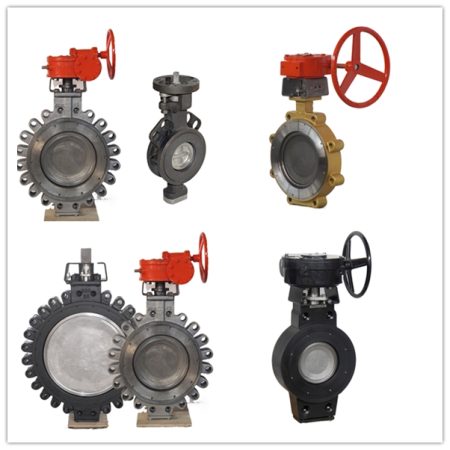
Commercial plumbing systems
Commercial plumbing systems are an integral part of the infrastructure in businesses, offices, and public facilities, ensuring the smooth operation of daily activities and maintaining a comfortable environment for occupants. These systems involve a more complex network of pipes, fixtures, and valves compared to their residential counterparts, as they must accommodate higher water usage rates and more demanding requirements for sanitation and safety. Fly valves, known for their exceptional flow control capabilities, durability, and versatility, are a crucial component in commercial plumbing systems. By providing reliable performance and reduced maintenance costs, they contribute to the overall efficiency and cost-effectiveness of the system. Their corrosion-resistant properties also guarantee prolonged functionality, even when exposed to harsh chemicals and varying water quality conditions. By incorporating fly valves into commercial plumbing systems, professionals can optimize the performance, longevity, and user satisfaction of the infrastructure, ultimately supporting the success and productivity of businesses and organizations.
Industrial plumbing systems
Industrial plumbing systems are critical components in the operation of manufacturing plants, processing facilities, and other industrial complexes, where they facilitate the efficient management of water resources, waste disposal, and process fluids. These systems require a robust and reliable network of pipes, fixtures, and valves capable of handling high-pressure environments, large volumes of fluids, and potentially corrosive or hazardous substances. Fly valves, with their excellent flow control capabilities, durability, and versatility, are an essential part of industrial plumbing systems. Their corrosion-resistant properties ensure their ability to withstand harsh chemicals and extreme conditions, while their reliable performance and reduced maintenance requirements contribute to the overall efficiency and cost-effectiveness of the system. By incorporating fly valves into industrial plumbing systems, professionals can optimize the performance, longevity, and user satisfaction of the infrastructure, ultimately supporting the productivity, safety, and success of various industrial operations.
Water treatment plants
Water treatment plants play a crucial role in ensuring the availability of clean and safe water for human consumption, irrigation, and industrial processes. These facilities employ a series of physical, chemical, and biological treatment methods to remove contaminants and impurities from raw water sources, such as rivers, lakes, or groundwater. An intricate network of pipes, pumps, filters, and valves, including fly valves, work in unison to regulate the flow of water through various stages of the treatment process, such as sedimentation, filtration, and disinfection. Fly valves, known for their exceptional flow control capabilities, durability, and versatility, contribute significantly to the efficiency and reliability of water treatment plants. Their corrosion-resistant properties enable them to withstand the harsh chemicals and conditions often encountered in these facilities, while their precise flow control ensures accurate dosing of treatment chemicals and proper functioning of the process equipment. By integrating fly valves into water treatment plants, professionals can optimize the performance, longevity, and user satisfaction of the infrastructure, ultimately safeguarding public health and supporting sustainable water resource management.
Irrigation systems
Irrigation systems are essential for the effective management of water resources in agriculture, ensuring the optimal growth and productivity of crops. These systems encompass a variety of methods, such as surface irrigation, sprinkler irrigation, and drip irrigation, designed to deliver water efficiently and uniformly to agricultural fields. A well-designed irrigation system relies on a network of pipes, pumps, and valves, including fly valves, to regulate the flow of water and maintain the desired level of soil moisture. Fly valves, with their exceptional flow control capabilities, durability, and versatility, play a vital role in optimizing the performance and reliability of irrigation systems. Their corrosion-resistant properties make them suitable for outdoor installations exposed to varying weather conditions, while their precise flow control enables accurate water delivery, promoting resource conservation and minimizing water wastage. By incorporating fly valves into irrigation systems, professionals and farmers can enhance the efficiency, longevity, and user satisfaction of their infrastructure, ultimately contributing to sustainable agriculture and food security.
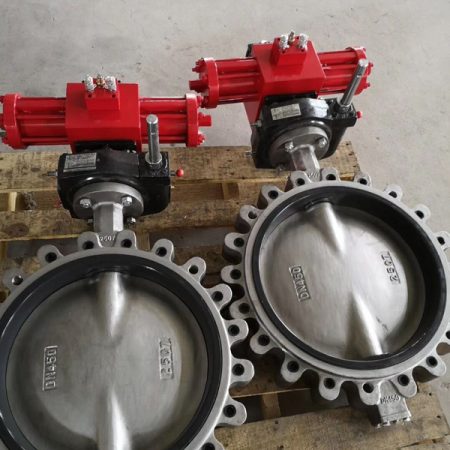
Tips for Choosing the Right Fly Valve
When selecting the right fly valve for a particular application, it is essential to consider several factors to ensure optimal performance, reliability, and longevity of the valve and the overall system. First and foremost, it is crucial to understand the specific requirements of the application, such as the type of fluid being handled, flow rates, operating pressure, and temperature ranges. This information will help determine the appropriate valve material, such as stainless steel, brass, or plastic, that offers the necessary corrosion resistance and durability to withstand the operating conditions.
Additionally, the valve size should be carefully considered to match the pipe size and flow requirements of the system. Choosing a valve that is too small can result in excessive pressure drop and reduced flow rates, while an oversized valve may lead to poor flow control and increased costs. It is also important to evaluate the type of valve actuation required, such as manual, pneumatic actuator, or electric, depending on the level of automation and control desired in the system. Manual valves are suitable for simple applications where direct intervention is adequate, while pneumatic or electric actuators offer more precise and remote control capabilities, ideal for complex or hard-to-reach installations.
Furthermore, it is essential to select a fly valve with a suitable end connection style to ensure proper compatibility with the existing piping system. Common connection styles include threaded, flanged, or push-fit connections, each offering different levels of ease of installation, maintenance, and sealing performance. When evaluating potential fly valve options, it is also crucial to consider the valve’s pressure and temperature ratings, ensuring they meet or exceed the maximum operating conditions of the system to guarantee safe and reliable performance.
Lastly, it is always advisable to choose a reputable manufacturer or supplier with a proven track record of delivering high-quality products and reliable customer support. This will not only ensure the durability and performance of the fly valve but also provide peace of mind knowing that technical assistance and spare parts are readily available when needed. By taking these factors into consideration when selecting a fly valve, professionals can optimize the performance, longevity, and user satisfaction of their fluid control systems, ultimately contributing to the success and efficiency of various industrial, commercial, and residential applications.
Consider the specific requirements of your plumbing system
When planning or upgrading a plumbing system, it is crucial to consider the specific requirements of the application to ensure optimal performance, reliability, and longevity. Factors such as the type of building, intended use, water supply source, and local regulations must be taken into account when designing and selecting the appropriate components. Analyzing the expected water demand, including peak usage times, will help determine the required pipe sizes, flow rates, and pressure ratings, while understanding the quality and characteristics of the water supply will inform the choice of corrosion-resistant materials and filtration solutions. Additionally, considering the layout and constraints of the installation site, such as space limitations, accessibility for maintenance, and environmental conditions, will guide the selection of suitable fixtures, valves, and connection styles. By carefully evaluating the specific requirements of your plumbing system, professionals can ensure the successful implementation of an efficient, safe, and user-friendly infrastructure that meets the needs of occupants and complies with relevant standards and regulations.
Look for reputable brands and manufacturers
When selecting components for a plumbing system, it is essential to prioritize reputable brands and manufacturers with a proven track record of delivering high-quality products and reliable customer support. Choosing well-established and respected companies ensures that their products have undergone rigorous testing and quality control processes, guaranteeing durability, performance, and compliance with industry standards. Furthermore, reputable brands often offer comprehensive warranties and after-sales support, providing peace of mind and assistance in case of any issues or maintenance requirements. By opting for trusted manufacturers, professionals can also benefit from their extensive expertise, technical resources, and innovative solutions, which can contribute to the successful implementation of an efficient, safe, and user-friendly plumbing infrastructure. In the long run, investing in reputable brands and manufacturers not only maximizes the value and longevity of your plumbing system but also helps maintain the satisfaction and trust of occupants and clients.
Compare prices and features to find the best value
When selecting components for a plumbing system, it is essential to strike a balance between cost and quality by comparing prices and features to find the best value. While it may be tempting to opt for the lowest-priced option, doing so might compromise the performance, durability, and safety of the system. Instead, focus on evaluating various products within your budget range, taking into consideration their materials, design, functionality, and compatibility with your specific application. Additionally, research customer reviews and testimonials to gain insight into the real-world performance and reliability of the products under consideration. It is also helpful to factor in any additional costs, such as installation, maintenance, and replacement expenses, as these can significantly impact the overall value of the component. By carefully comparing prices and features, professionals can identify the most suitable products that offer the best combination of quality, performance, and affordability, ensuring the long-term success and satisfaction of their plumbing systems.
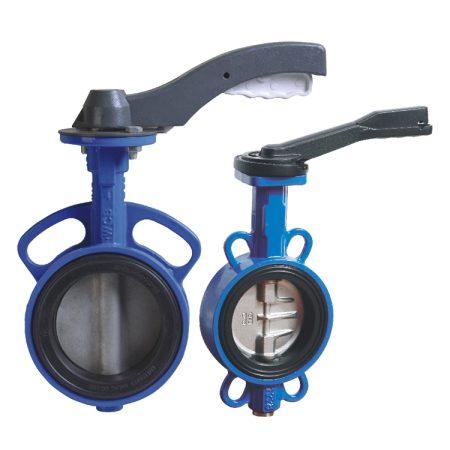
Conclusion
In today’s modern world, plumbing systems play an essential role in maintaining the health and comfort of the people who rely on them. Whether it’s in residential, commercial, or industrial settings, efficient and reliable plumbing systems are vital for ensuring the smooth operation of daily activities. One key component that can significantly contribute to the success and longevity of these systems is the fly valve. In this article, we have discussed the numerous benefits of integrating fly valves into your plumbing systems and how they can enhance overall performance, durability, and user satisfaction.
To recap, some of the most notable advantages of using fly valves in your plumbing systems include:
- Exceptional flow control: Fly valves offer precise and efficient control over the flow of fluids, ensuring optimal performance and preventing issues such as water hammer, pressure fluctuations, and inconsistent flow rates.
- Durability and corrosion resistance: Made from materials like stainless steel, brass, or plastic, fly valves are designed to withstand harsh conditions and corrosive substances, ensuring long-term reliability and minimal maintenance requirements.
- Versatility: Fly valves can be used in a wide range of applications, making them an ideal choice for various types of plumbing systems, including water supply, wastewater treatment, irrigation, and industrial processes.
- Ease of installation and maintenance: With various connection styles available, such as threaded, flanged, or push-fit connections, fly valves can be easily integrated into existing or new piping systems. Their simple design also allows for straightforward maintenance and replacement when necessary.
- Energy efficiency and water conservation: By providing accurate flow control, fly valves contribute to the efficient use of resources, minimizing water wastage and reducing energy consumption associated with pumping and heating systems.
- Safety and compliance: High-quality fly valves are designed to meet or exceed industry standards and regulations, ensuring the safe and reliable operation of your plumbing systems.
- Cost-effectiveness: While the initial cost of a fly valve may be higher than other valve types, their durability, low maintenance requirements, and efficient performance make them a wise long-term investment that can save money in the long run.
In conclusion, incorporating fly valves into your plumbing systems can greatly enhance their performance, reliability, and user satisfaction, ultimately contributing to the success of your projects and the well-being of the people who depend on them. By carefully considering factors such as application requirements, materials, size, actuation type, and connection style, professionals can select the most suitable fly valve for their specific needs, ensuring the best possible outcome for their plumbing systems. So, when planning or upgrading your plumbing infrastructure, don’t overlook the many benefits that fly valves have to offer – they just might be the key to unlocking the full potential of your system.
Recap the main benefits of using a fly valve in plumbing systems
In summary, the main benefits of using a fly valve in plumbing systems include exceptional flow control, durability, corrosion resistance, versatility, ease of installation and maintenance, energy efficiency, water conservation, safety, and cost-effectiveness. Fly valves provide precise management of fluid flow, ensuring optimal performance and preventing common issues. Their construction from materials like stainless steel, brass, or plastic offers resistance to harsh conditions and corrosive substances, guaranteeing long-term reliability. Furthermore, their adaptability across various applications makes them an ideal choice for diverse plumbing systems. The simple design of fly valves allows for easy integration and maintenance, while their accurate flow control contributes to resource conservation and reduced energy consumption. By meeting industry standards and regulations, fly valves ensure safe and reliable operation, making them a wise long-term investment for plumbing systems.
Encourage readers to consider incorporating fly valves into their plumbing projects for improved performance and reliability
As you plan or upgrade your plumbing projects, we strongly encourage you to consider incorporating fly valves into your systems for improved performance and reliability. These versatile and durable valves not only offer exceptional flow control, but also contribute to the longevity and efficiency of your entire plumbing infrastructure. By opting for fly valves, you can experience enhanced resource conservation, reduced energy consumption, and better compliance with industry standards and regulations. Ultimately, this investment in quality components will result in a more dependable, safe, and cost-effective plumbing system, ensuring long-term satisfaction for users and clients alike. So, as you embark on your next plumbing endeavor, remember the many benefits that fly valves have to offer and give them serious consideration for a successful and efficient outcome.



